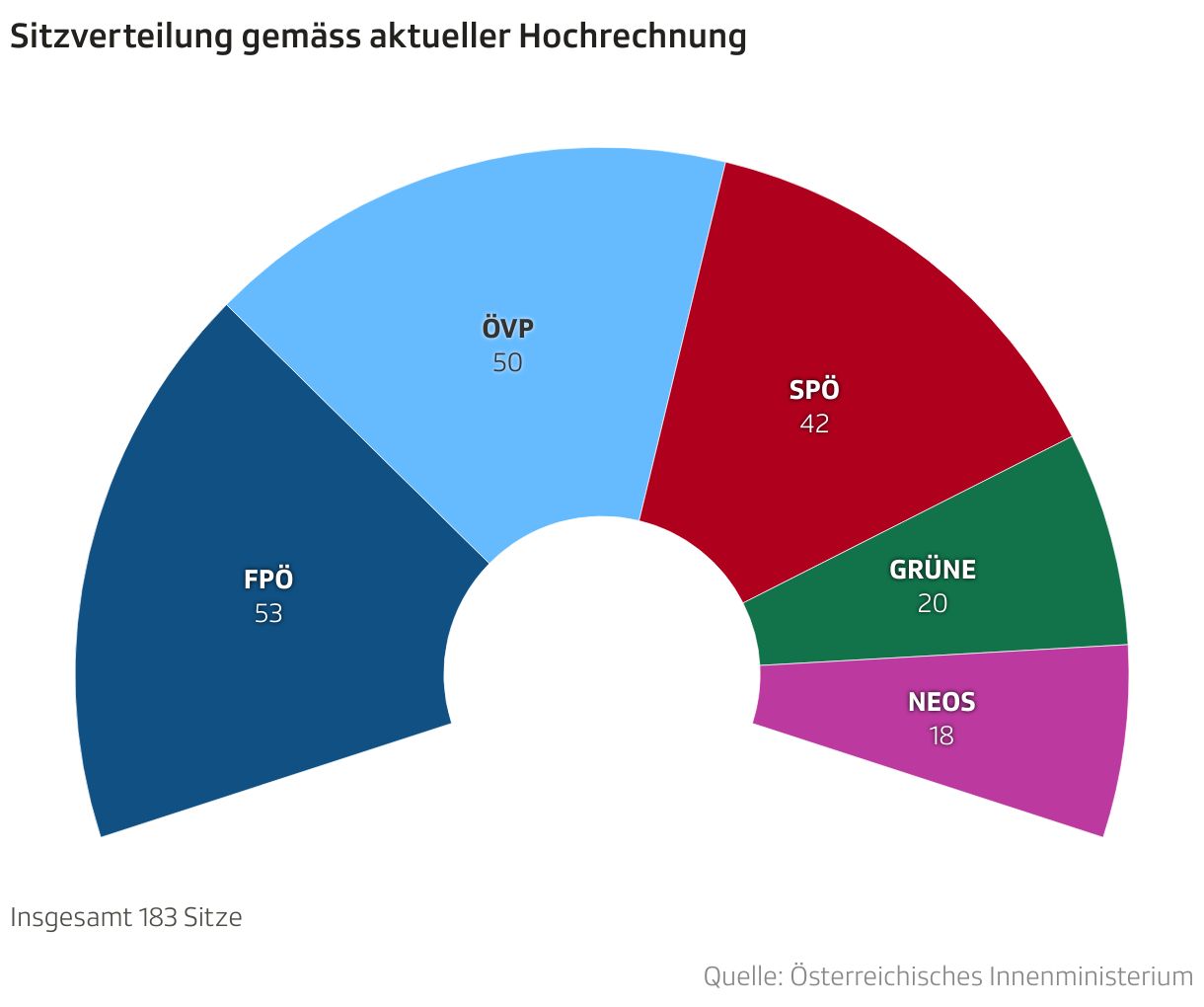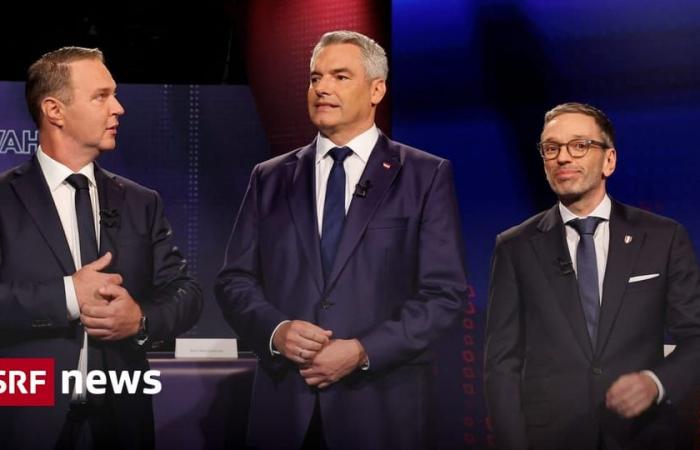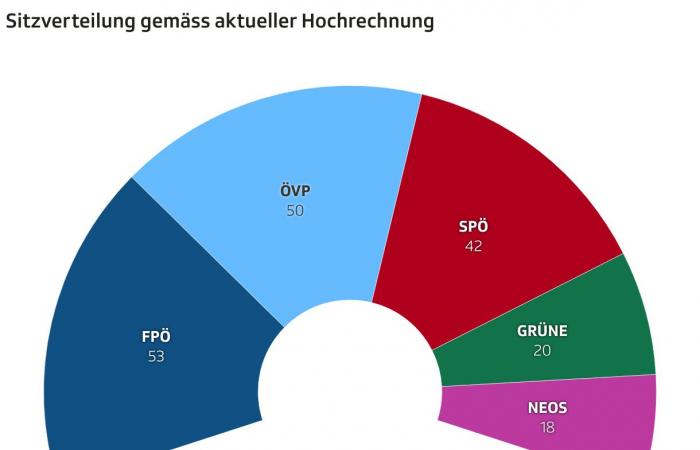The numbers: The FPÖ is the strongest political force in Austria for the first time. According to projections, the right-wing populists achieved their best-ever result in the parliamentary election with over 29 percent of the vote. This is an increase of 13 percentage points compared to 2019. The Chancellor’s Party ÖVP lost around 11 percent compared to the last elections. The SPÖ fell to a record low of 21 percent.
The prevented chancellor: But the clear election winner, Herbert Kickl, is probably blocked from entering the Chancellery as head of the FPÖ. The conservative ÖVP, the only conceivable coalition partner, continues to refuse to work with the right-wing politician.
Despite the victory, it will be very difficult for Kickl to become the next chancellor. All parties have so far refused to work with the 55-year-old.
Keystone/EPA/Filip Singer
Kickl sees the historic election victory of his right-wing party as a signal for a change of direction in Austria. “The voter spoke out today,” he said in his first reaction. The voters “made a clear commitment that things cannot continue like this in this country.”
Federal President in confrontation with Kickl
Open the box
Box zuklappen
Federal President Alexander van der Bellen.
Keystone/APA/Georg Hochmuth
Austrian Federal President Alexander Van der Bellen does not necessarily have to give the task of forming a government to the party with the largest number of votes. The former Green Party leader has repeatedly made clear his criticism of the FPÖ’s political positions on EU, migration and the war in Ukraine.
The coalition of losers: It is likely that Chancellor Karl Nehammer will be given the task of forging a government coalition. The alternative to the FPÖ is the SPÖ. However, an alliance is considered difficult because SPÖ leader Andreas Babler has moved the Social Democrats far to the left with demands such as a 32-hour week. However, it remains to be seen whether Babler will be able to stay in office given the result.

The turning point: The election result is a turning point for Austria in several respects. The ÖVP, spoiled for power, and the SPÖ have never been so weak at the same time. The Social Democrats only achieved third place for the first time, while the ÖVP at the top recorded one of their worst election results.
According to election researchers’ findings, the FPÖ benefited enormously from the great dissatisfaction among the population. Austria is in an economic downturn and unemployment is growing. In addition, the Alpine republic has been one of the EU countries with particularly high inflation in recent years. The FPÖ’s strict anti-migration policy is also considered popular.
There is discontent in Austria
Open the box
Box zuklappen
On election evening, protests against the FPÖ formed in Vienna.
Reuters/Leonhard Foeger
The parliamentary election in Austria was characterized by dissatisfaction and the desire for change. This emerges from data from the Foresight Institute on behalf of the broadcaster ORF. Six out of ten respondents are convinced that the country is developing negatively – almost twice as many as in the 2019 National Council election. According to the survey, the right-wing FPÖ benefited most from people’s concerns.
For many citizens, migration was an important voting motive, even before inflation and security issues. According to election researchers, the person Herbert Kickl was not a decisive factor among voters. The government made up of the conservative ÖVP and the Greens has recently been very unpopular with voters – six out of ten of those surveyed were little or not at all satisfied with the coalition’s work.
The shift to the right: The FPÖ’s significant gains are in line with the Europe-wide right-wing trend. Right-wing parties have gained popularity across Europe, for example in the Netherlands Geert Wilders and his right-wing radical Party for Freedom (PVV). In Germany, the AfD achieved great success in the state elections in Saxony, Thuringia and Brandenburg. AfD leader Alice Weidel immediately sent congratulations to Vienna:
The Italian right-wing party Fratelli d’Italia (Brothers of Italy) with Giorgia Meloni at the helm and the right-wing national Rassemblement National (RN) with Marine Le Pen in France also enjoy great popularity.
The program: In its election program, the FPÖ promoted an extremely restrictive migration policy under the motto “Fortress – Fortress of Freedom”. The party calls for migrants to be returned to their home countries and wants “homogeneity” in society as a counter to the diversity that is often sought internationally.
When it comes to foreign policy, the FPÖ is extremely critical of the EU. Despite the war in Ukraine, it is taking a rather benevolent course towards Russia and sees no problem with Austria’s dependence on Russian gas. Under Kickl’s aegis, the FPÖ also gave up its distance from the Identitarians, who were classified as right-wing extremists.








